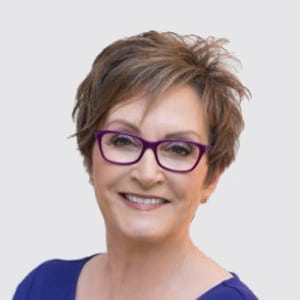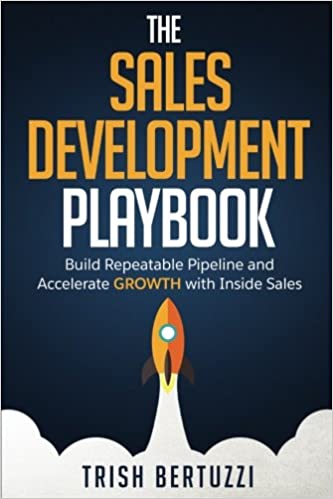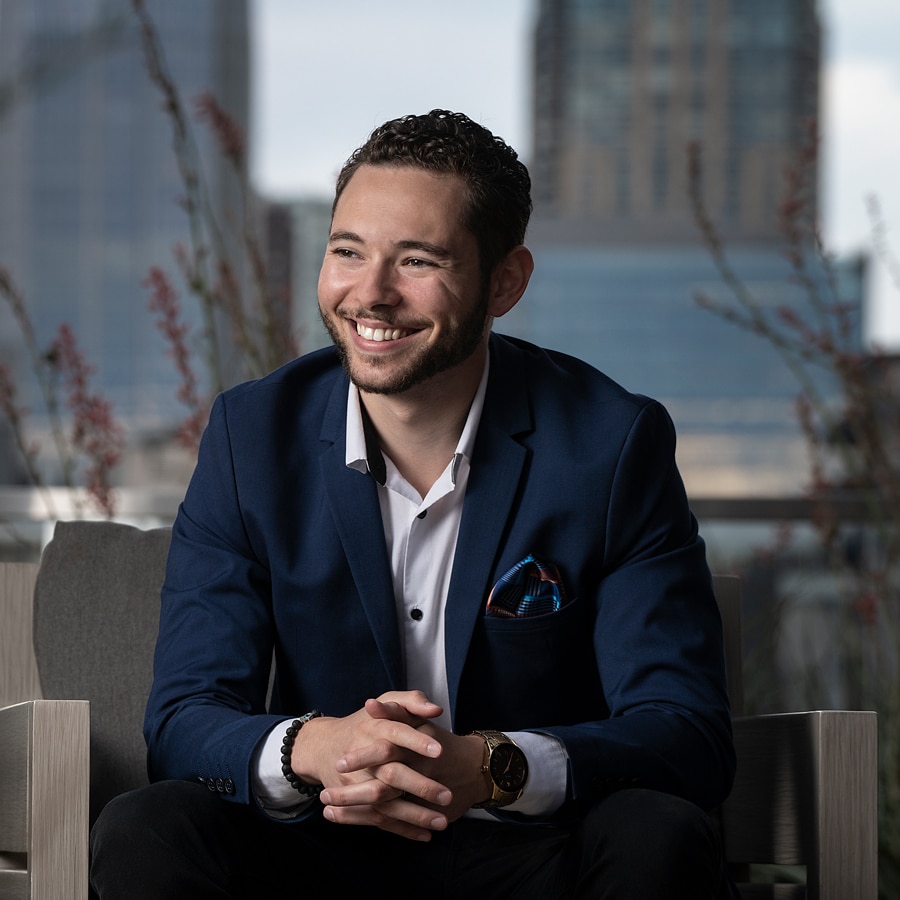
How to Build a Repeatable Sales Pipeline and Accelerate Growth with Trish Bertuzzi


When it comes to pipeline and revenue generation, it seems that no matter how much you’ve been doing it, you can never totally perfect it.
[TB]: And you never will. Especially with the way things have been changing over the last few months. Perfection is not a goal that will be achieved. We are in a human world now. We’re getting to see each other as humans.
How do you navigate that human component? How do you bring that into sales development and what do you think will be different moving forward?
[TB]: So I think what’s different today is we have the ability to go back to being human and talking to each other like humans. For a while, I think we got on this rapid fire of activity messaging. And now I think everyone kind of took a breath, thought about what their story was, thought about how they can add value, and are now figuring out how to communicate that in a way that’s me-to-you. Everyone talks about personalization at-scale … personalization doesn’t scale. I think you really have to figure out how to communicate that you understand your contact’s role, his or her challenges, and how you can help. Then have a conversation about it. That’s it. No “leading provider of” messaging. No “I helped X company achieve 9M% growth” — no one believes that anyway. Just be human.

Is it more important to perfect sales skills or build pipeline?
[TB]: You can’t get to the pipeline unless you have the sales skills. Pipeline is harder to generate than revenue, I think. Top of funnel, in particular, is really hard nowadays. You have to have the story to tell, be fluent at telling it, and have a process.
You also have to understand: who am I competing with in this deal? Who am I selling to? Because more people are involved in the decision-making process these days, and you need to know that up front and start playing those cards up front.
My biggest competitor is “do nothing.” So you need to ask yourself, am I, as a seller, prepared to compete with “do nothing”? Most people aren’t. Most people are trained on how to compete with competitors (e.g., other providers, other solutions), but no one teaches them to compete with the decision to do nothing.
Status quo (these numbers are not COVID-19 impacted numbers) is to win roughly 25% of deals. So you win 25%, you lose 25% to competition, and you lose 50% to no decision. There have been multiple factors that have impacted that, with the primary reason centered around poor qualification. Post-COVID-19, people are holding on to their dollars. They’re nervous about what’s going to happen next. Cash is king, always has been, and they are a little hesitant to spend.
We have to figure out how to view “do nothing” as our biggest competitor. You need to be able to articulate not just your features and benefits, but how they impact someone’s business if they get it implemented well.
Is it more important for a company to focus on building the pipeline or focusing 100% on what’s already existing in their pipeline?
[TB]: It depends. Unfortunately, there’s not just one answer to almost any question, but it really depends on the type of sale. If you’re a highly transactional, two-call close, yes, you want to continue to build pipeline. But if you don’t fall into that category, you definitely want to be more cognizant of the people that you’re allowing to the top of funnel because you’re going to be expending resources on them. You don’t want to expend resources on a deal that’s never going to happen. So we must be super cognizant of what goes in the top of the funnel. Then, when we get to middle of the funnel, that’s where people start sloppy selling. Top of funnel gets a lot of attention and bottom gets a lot of attention, but the middle — the really crafting the value and setting the vision — that’s where we need to spend more time.

What do you feel works best in that initial process? Is it more about the perfect message or is it consistency? Is it about the person who shows up first, shows up the most, and stays consistent that wins the deal on average?
[TB]: I don’t want to show up first because if I’m not first, I can ask questions about what happened in the start position. But show up consistently? Absolutely. When I say consistent, I mean you have to have a plan for how you’re going to move the needle, not just touch base or check in.
For example, we had a meeting, I added value, you agreed that I added value, and we agreed on next steps. Now, let’s make sure we execute on those next steps. A lot of times what happens is you have a demo and then ask when you should connect again. They say two weeks and you call them back then. But that’s not a plan.
I think paying more attention to that nurtured strategy and middle of funnel is going to yield a lot more. So super qualified at the top, really focus on nurturing in the middle, and then have a great closing strategy.
What would you recommend to excel at qualifying at the top of the funnel?
[TB]: Often, we don’t ask closing questions at the beginning. We save all of our closing questions for the end and I don’t know why. For example, after a great qualification call, you could ask: “This was great, I think we laid out a plan, do you agree?” If they say yes, probe a little further. “On a scale of 1 to 4, with 4 being the highly likely, how likely do you think it is that we will be doing business together?” It’s ok to ask that if you have invested the time, had a great conversation, established empathy and credibility, and delivered value. It’s a nice softball question, 1 to 4. If they say anything other than a 4, ask “why did you pick that number?” I am a lover of 1 to 4 questions because it reduces the chance that the person will select a number right in the middle.

What do you recommend for getting that initial call? In the past, it was very transactional — “Hey, can I get 15 minutes of your time? — What is working now and what do you think will work better post-COVID-19 to get that initial conversation started?
[TB]: Content is going to make a comeback — a BIG comeback. When you’re pursuing a potential buyer, you’re telling them a story. If you have great content to give them, embedded in your process, you’re moving the cycle faster for establishing empathy and credibility. Not gated content, but content embedded in your outreach strategy.
Are you fairly channel agnostic?
[TB]: Well, I’m a big phone girl because I have a firm belief that no sale starts until someone has a conversation. I think you have to go with the channel that your buyer prefers. So you have to do research and ask your buyer how they would prefer to be communicated with (e.g., email, phone). Informal research will give you great insights. I’d be surprised if you got any consistency with the responses, but it’s good to keep asking.

What led you to the decision of writing your first book and how did you go about that?
[TB]: I had no overwhelming desire to write a book, but a friend of mine kept saying to me “you own the space so just go own it.” I had a year from hell as I wrote the book and ran the business, but it did really well. We initially thought we were going to sell 500 copies from family, friends, and clients. But the last time I looked (and I don’t look often), it was at around 30,000. I never promoted the book. I self-published. I like doing things in an organic way.
If you’re going to write a book, take the time to write a truly good book. These days, there’s no barrier to writing a book, but the truly good books will always rise to the top.
How has mentorship played a role in your life over the years?
[TB]: I have had the most fabulous mentors, and I still do. I love Jill Konrath. There’s also a group called Women Sales Pros, run by Lori Richardson. Those women are so smart. I talk and I learn from them all the time. I love talking Keenan. Richard Harris. Morgan Ingram. Ashley Early. I adore people who are doing good work to do good work and not with an ulterior motive. So those people tend to be my mentors.

Trish Bertuzzi is the best-selling author of The Sales Development Playbook and founder of The Bridge Group, Inc. She and her team have worked with over 405+ B2B technical companies, helping them unleash the power of sales development, inside sales, and customer success. They are on a mission to help companies build repeatable pipeline and accelerate growth, using buyer-based modern selling strategies.
Learn more about the Bridge Group: https://www.bridgegroupinc.com
Connor Dube is Sales & Marketing Director at Active Blogs, an industry leader in B2B social selling and content strategy, Co-Founder of the Mile High Mentors Podcast, and Founder of B2B Mentors. Building his first business at seven, he’s gone on to create multiple companies and supporting his clients approaches to adding multiple 8-figures to their sales pipeline with his innovative approach to Social Selling. As a current leader in sales and marketing strategy for complex industries, Connor’s been featured in top podcasts, resources, and stages, including MSU Denver’s current sales and marketing curriculum.
Connect with Connor on LinkedIn: https://www.linkedin.com/in/socialsellingexpert/ or email him at connor@activeblogs.com

